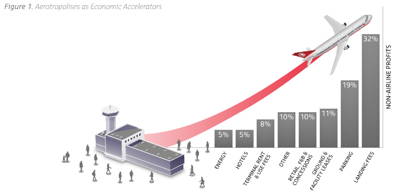 Cleanzine: your weekly cleaning and hygiene industry newsletter 11th April 2024 Issue no. 1109
Cleanzine: your weekly cleaning and hygiene industry newsletter 11th April 2024 Issue no. 1109
Your industry news - first
The original and best - for over 20 years!
We strongly recommend viewing Cleanzine full size in your web browser. Click our masthead above to visit our website version.
Rules are changing for corporate reputation management, reveals Workplace Trends Report
 Employees and consumers are gaining greater influence over corporations' behaviour thanks to a surge in e-commerce and social sharing, according to Sodexo's 2015 Workplace Trends Report.
Employees and consumers are gaining greater influence over corporations' behaviour thanks to a surge in e-commerce and social sharing, according to Sodexo's 2015 Workplace Trends Report.
A new form of public accountability, dubbed 'Rateocracy', is putting unprecedented pressure on companies to act transparently, highlighting one of the major shifts in how the workplace is changing in response to technology and cultural expectations.
"When workers and customers can instantly share their opinions of a company with thousands of people, concerns like morale, transparency and fairness become an integral part of how businesses manage their reputation," says Michael Norris, Sodexo's chief operating officer. "The goal of the Workplace Trends Report is to evaluate how ongoing changes, like the growing power of one person to influence a company's reputation, are affecting the everyday experiences of employees and their managers.
Those everyday experiences have bottom line implications when you consider that $3.6 trillion in retail sales are directly influenced by online reviews and social media."
The report provides an in-depth analysis of nine notable implications accompanying this new era of Rateocracy, including the need for constant real-time reputation management and the new role of the CEO, which is to communicate an honest and aspirational vision that connects employees and customers.
Transparency is particularly important in addressing public relations challenges that are increasingly being amplified through social channels.
Experts contributing to the report provided insights on additional quality of life trends impacting the workplace, for example, a trend identified through the report is the development of 'airport cities' in which an airport becomes a business magnet and an engine for regional economic development.
For a growing number of companies, large and commercially developed airports provide not just physical connectivity but a functional headquarters where geographically dispersed corporate staff, executives, and board members can fly in for sales meetings, client contacts, and high-level decision-making.
For example, The Sofitel at Heathrow's Terminal 5 is now ranked among the most popular places to hold business meetings in the United Kingdom.
Airport cities are also creating large-scale employment opportunities for workers across sectors, from cleaning to warehousing and transportation to finance and insurance. Chicago O'Hare, for instance, has 450,000 jobs in the radius of five miles, and Dallas-Fort Worth has 395,000 jobs in the same radius. The result is that job seekers may be following the runway to find their next place of employment.
The emergence of mindfulness and meditation at work is another key trend for employees and businesses. The science is settled on the consequences of highly stressed employees, and the long list of associated problems is setting off alarm bells for companies seeking to recruit, retain and get the best out of talented employees.
Large employers, such as Aetna, Florida Power and Light, and the State of Arizona, are offering programmes to employees that relieve stress and target the roots of chronic health conditions and lost productivity.
In one study, a 12-week mindfulness at work programme - meeting just once a week for 55 minutes - was found to reduce participants' perceived stress by 36%, decreased sleep disturbances by 29% and cut reported pain levels by more than a third. These results are a small but promising step toward addressing the challenge of chronic diseases, which are on the rise in many parts of the world across all demographic groups and are frequently associated with increased stress, poor sleep and prolonged pain.
This year's report also identified 10 skills essential for future success in the workforce. Projections include skills such as social intelligence and adaptive thinking, which can complement, not compete, with the increasing automation that is driving economic growth.
Access Sodexo's full 2015 Workplace Trends Report here.
Sodexo's 2015 Workplace Trends Report combines insight from principal research, clients, academia and leading facilities management and human resource trade organisations.
See the full report at:
www.viewer.zmags.com
19th February 2015







